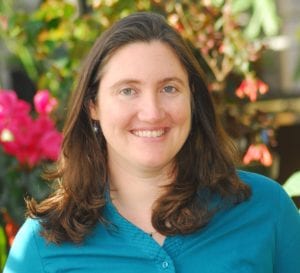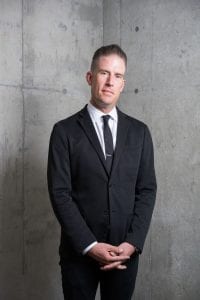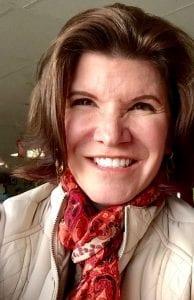Katie Wilkinson
Tenure and promotion to associate professor
Years at SJSU: 6
Department: Biology
RSCA focus: Neurons in the muscle that sense stretch and how diseases impact them.
Associate Professor Katie Wilkinson, who has enlisted the help of undergraduate and graduate students in her research, is working on a four-year grant from the National Institutes of Health to continue their work in understanding basic biology of stretch-sensitive neurons. She and her students have published four papers since 2015, including a cover article for Nature Neuroscience as well as recent pieces for the Physiological Society’s Physiological Reports and PLOS One. She is especially pleased that four former lab students are now in doctoral programs.
“I love seeing where students end up after they leave SJSU,” she said.”
In addition to her research, Wilkinson led the redesign of introductory biology courses, served on the University Graduate Studies and Research Committee, and was active with the management team for the STEM Cell Internship in Laboratory-based Learning masters program, among other service activities.
Her advice to students?
“Pursue research experiences early,” she said. “The best way to know if you like Biology and want a career in research is to try it out.”
Note: Congratulations to the 43 faculty members who received tenure and/or promotion for 2018-19. We have invited each faculty member to participate in a series of posts profiling their teaching, service, and research, scholarship and creativity activities. Those faculty who opted to participate will be featured throughout the fall semester on the Academic Spotlight blog and the digital sign in the Administration Building lobby.






